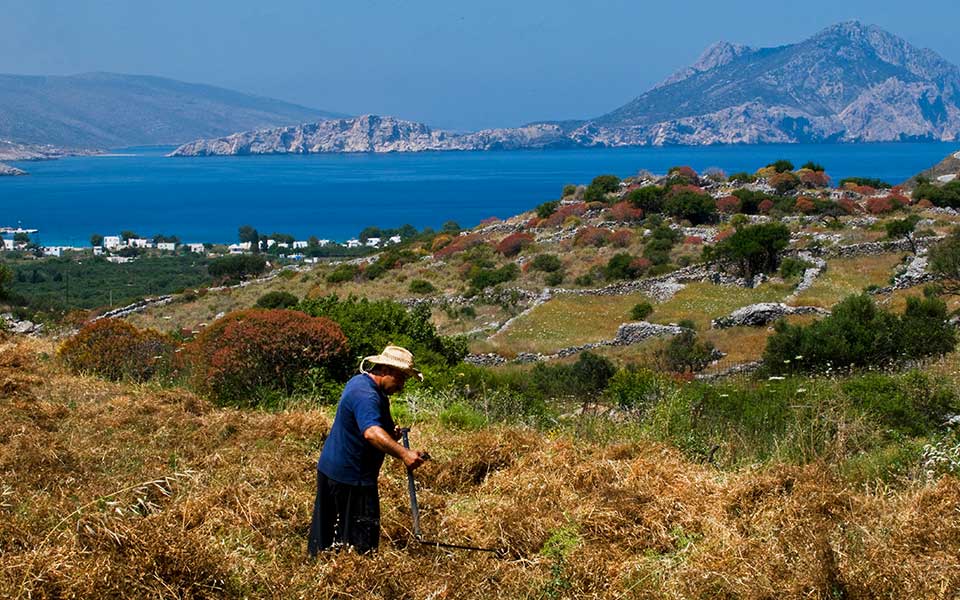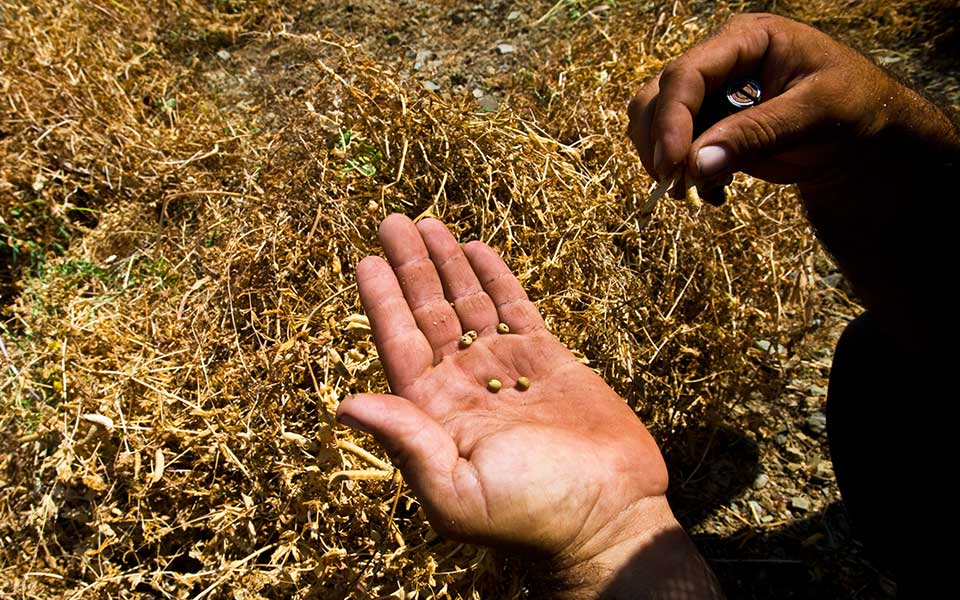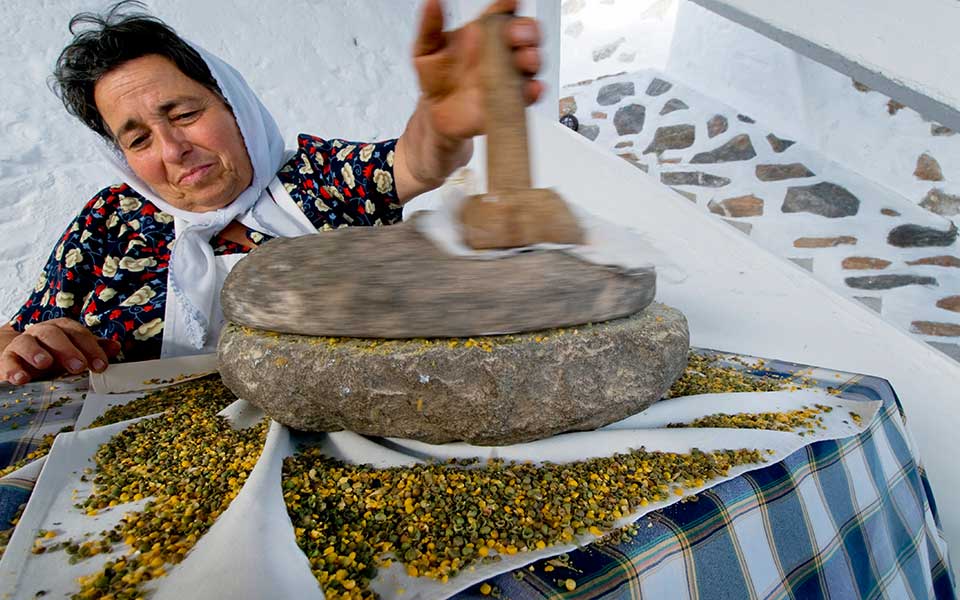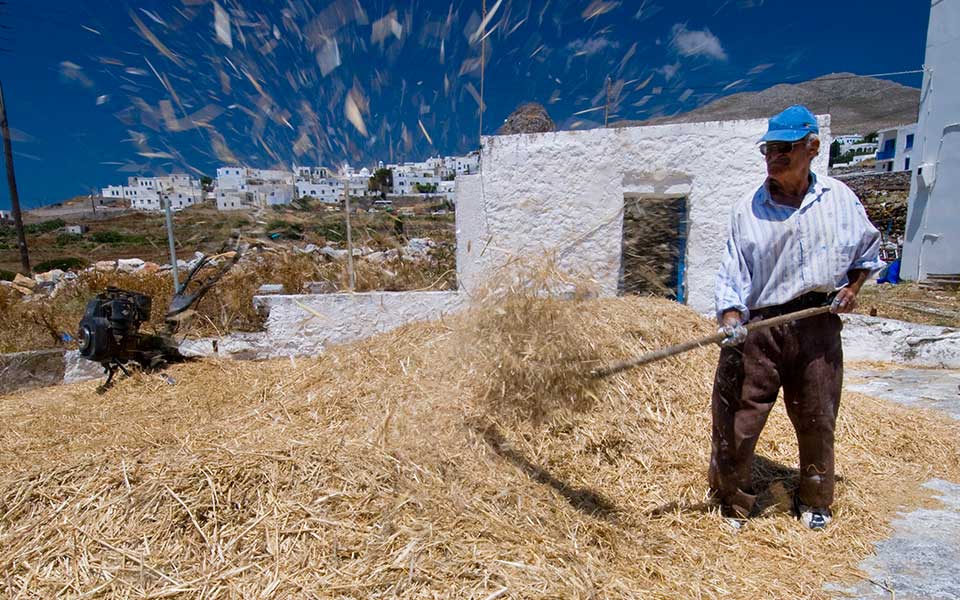Paraskevas is walking ahead of me, carrying a sickle on his shoulder; he reminds me of an illustration from a reading book I had in primary school. We are descending from his village – Tholaria, on the island of Amorgos – to the fields where he will harvest his fava, or yellow peas.
“This year it’s rained a lot, and it has been going well. I just need to finish before the heat comes, because the pea pods break open then and the peas get lost on the ground. We don’t want to waste them” he says, as if to himself.

© Clairy Moustafellou

© Clairy Moustafellou

© Clairy Moustafellou
Once he has finished cutting them with a sweeping motion, he bundles the plants up and takes them to the threshing floor, where donkeys are used to perform the threshing.
Next, the winnowing takes place, which requires a strong breeze to carry the stalks away as the heavier pea pods fall to the ground. The peas are then shucked and kept in jars.
When the time comes for them to be cooked, they are put in the hands of Paraskevas’ mother, Maria. She patiently splits them in the hand mill and then uses a riddle screen to remove the skin, keeping only the inner core of the pea.
“Do you know, ” she asks me as the split pea (known as “fava” in Greek) cooks, “what we say when we begin planting? ‘O Mother Mary, one half depends on God and the other half depends on the weather.’” She smiles and presents me with the best fava I’ve ever eaten in my life.












